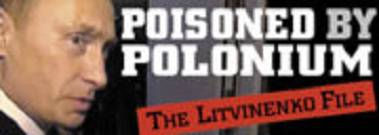|
|
||||
|
|
by Donald Levit  The original title of Rebellion: The Litvinenko Case still on the screening print, filmmaker and onscreen interviewer Andrei Nekrasov’s movie is to appear in public as Poisoned by Polonium: The Litvinenko File, done last year alongside My Friend Sasha: A Very Russian Murder. The case in question could-should have brought back into news this very James Bondish but very real 2006 affair. The 105-minute documentary spreads its net too wide and is cast in such a manner that this viewer walked out with but general impressions drowned in a flood of confusingly presented personalities and events. Further, in contrast to a critic’s recent “most documentaries circumnavigate [their] subject, examining it from every possible angle,” this indictment so overwhelms from one side only that, absent the smallest counterbalance, one is not allowed a roundly informed decision and therefore tunes out. The camera moves up three steps to the kitchen dining area of the Though Sasha is killed somewhere in between -- actually before the film -- chronology or emphasis seems so skewed that it comes as a surprise when wife Marina is introduced past the half-way mark, and his conversion to Islam and his bereaved father only at the very end along with the suspected but never tried assassins Kovtun and Sokolenko (who offer one of two moments of comic relief). Memory whispers a SPECTRE-worthy umbrella tip, but with no proof it is taken as true that the former KGB/FSB lieutenant colonel was felled by radiation poisoning from Polonium-210 slipped into his tea. The film is dedicated “To Sasha,” with whom Nekrasov became an admiring friend after long efforts to locate him and an embrace-concluded first taped interview in 2002. Like many (including Vladimir Putin), Sasha was early influenced by nationalistic films about brave soldiers or spies risking their lives for Mother Russia. The informers, intrigues, suppression and torture that was the background of their youth, led him to the government’s not-so-secret police organizations in which he became a counterintelligence field operative officer with, his wife says, internal enemies unhappy with his honest decency. More serious enmity arose with his and others’ televised 1998 charges against higher-ups of murder, kidnapping, torture and personal as well as political corruption. This thunderbolt in a media-regulated society and Sasha’s subsequent discharge, detention and prosecution, made scarcely a ripple in the outside. What shortly was to make the world stand up and notice was the ascension to acting president, and then two-time election as president, of Putin, former KGB agent in This homage to him, however, is really diatribe against an authoritarian state governed and milked by an oligarchy of wealth, as de facto totalitarian as under tsars or commissars, and terrorized into line by Oprichniks become Okrana become Cheka become NVVD, NKGB, MGB, MVD, KGB and today FSB. The 1991 collapse of the Inserting shots of Putin in church or honored by world leaders, Nekrasov bombards us with quite possibly accurate accusations, not only of political skullduggery, but of spurious commercial transactions, business shenanigans involving Mafiosos and Latin drug traffickers, international cover-ups, maneuverings and financial sleight-of-hand from the regional to the very highest levels. There is much here, too much, and, given the film’s flawed organization, those without sound prior knowledge will be unable to assimilate the complex hand-in-glove. (Released by Kino International; not rated by MPAA.) |
||
|
© 2026 - ReelTalk Movie Reviews Website designed by Dot Pitch Studios, LLC |



